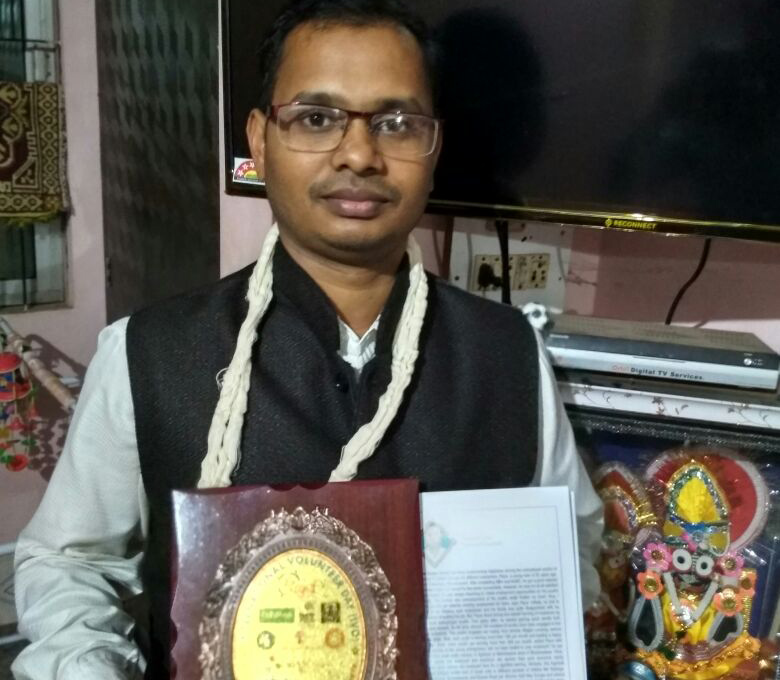For Piyush Kumar Sahoo, fungiculture is not just about cultivating mushrooms. It is a tool to enhance economic opportunities for women, opening avenues for them to rise out of poverty. It helps them to play a proactive role in decision-making, empowering them. Mushroom cultivation also helps in achieving community wellbeing.
Piyush, the son of retired teachers Bichitrananda Sahu and Nirupama Dei, is a Bhubaneswar based entrepreneur and social activist. He says, “While I was doing my graduation at BJB Autonomous College, I set up a band so that artistes from rural areas could get a platform to showcase their talent. Then I started a computer training institute in 2001 to teach poor students and make them employable. I always wanted to do something for downtrodden women living in the rural areas of our state. These women often lead pitiable lives. I decided to go in for mushroom cultivation so that they could get some income. I started farming on three acres of land and have now extended this to about 13 acres. At one point, I was short of funds and had to borrow from my relatives to carry on farming.”
He took up mushroom cultivation employing hundreds of women of Balanga, Mangalpur, Khurda and Mayurbhanj. By taking to mushroom farming in a big way, he ensured steady earnings for many families. “The women mushroom farmers are now respected for their earning ability and have contributed to positive changes in the socio-economic condition of their families. Mushroom farming has not only empowered the women, it has given a boost to our rural economy. These women farmers have ensured that their families get balanced meals, their children get proper education and the health needs of their families are fulfilled. Mushroom cultivation has developed into a family and community-based venture. Men are assigned to procure raw material from the local market and help women in germination of seeds. If everything goes as per plan, we will adopt an internationally proven technology to double our produce in one go. By February, we hope to introduce the technology,” Piyush says.
“The period between September and March is the best time to start mushroom cultivation. We grow button mushrooms during this period without any air-conditioning facility as the climate remains cool,” he explains.
Piyush’s role in motivating women to take up mushroom farming is praiseworthy. He is also known for encouraging mushroom seed production and mushroom processing facility in rural Odisha.
Piyush may have contributed to improving the socio-economic status of rural women, but he wants to go further and stop the exploitation and discrimination faced by these women. Piyush’s achievements are not limited to mushroom farming. He has an incense stick manufacturing project which employs differently-abled people. He is one of the leading manufacturers of raw incense sticks in Odisha now. “Incense stick making is very easy. I roped in differently-abled people because it is work that they can do just sitting. It gives them good money without difficulty.”
Founder of Omm Shree Educational Health and Cultural Association, Piyush’s success story does not end there. He is also a manufacturer of soft drinks. “Launching a successful soft drink business takes time and a lot of money. Although there are similarities between successfully creating and selling soft drinks and other consumer products, the soft drink industry requires entrepreneurs to develop a keen understanding of consumers’ relationship with soft drinks and how factors like flavour, health consciousness and brand recognition fit into this relationship.”
In his free time, Piyush engages in social service like planting trees, creating awareness on the harmful effects of tobacco consumption and participating in cleanliness drives. “I love to keep myself busy in making this world a better place to live in.”
Sharing his mantra for success, he says, “To become successful, one needs to put in hard work. Sometimes, luck is a factor. And I am sure I will be successful, as I believe I am blessed with such factors.”
RASHMI REKHA DAS, OP
